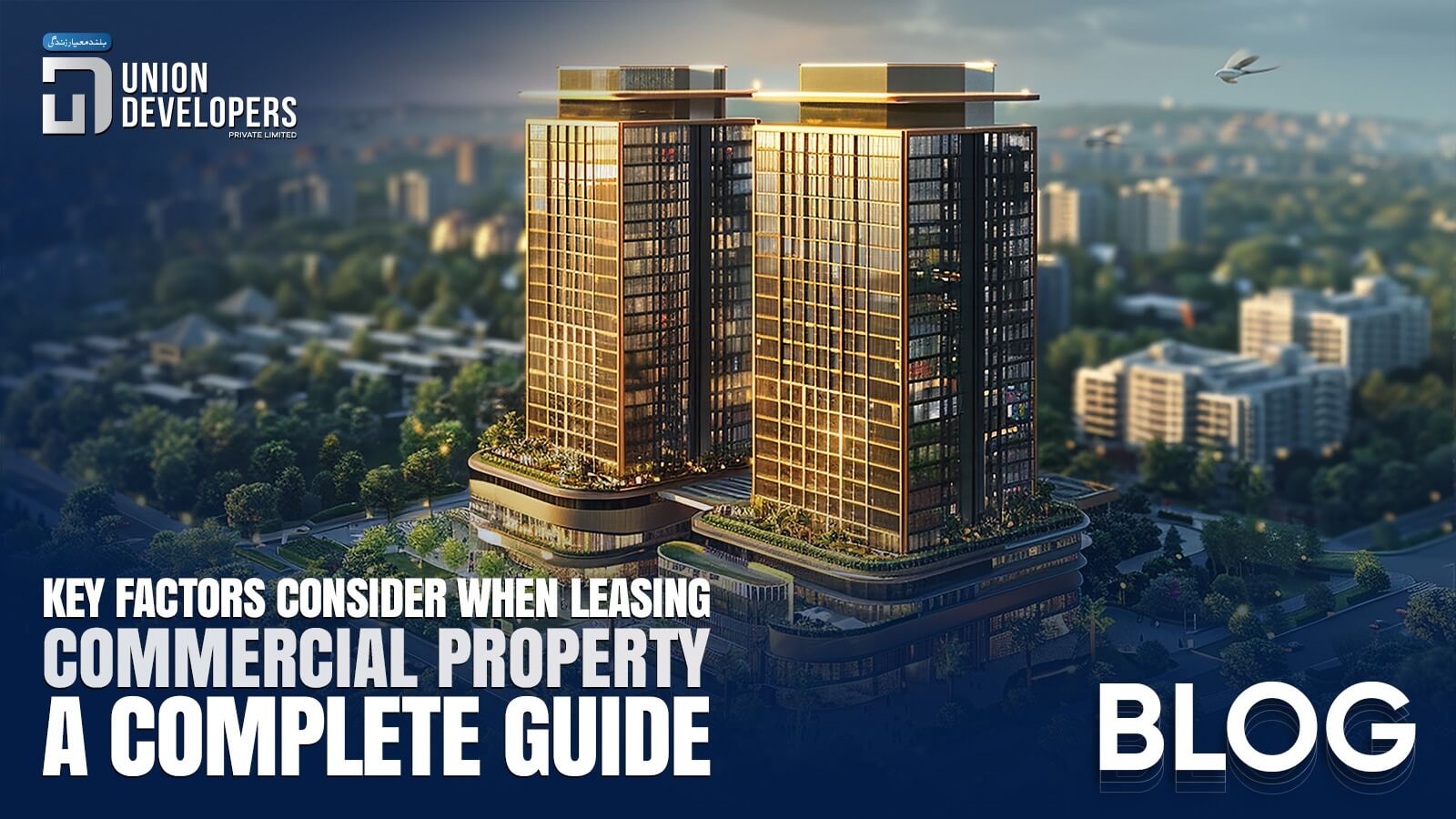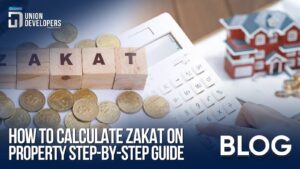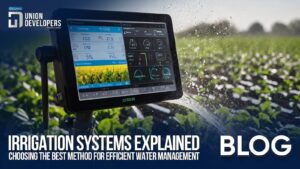Leasing commercial property is different than renting a home. Commercial property covers many aspects that are not encountered in residential leases. Landlords and tenants must be aware of such considerations when negotiating agreement terms. This blog will discuss commercial property leases and the key issues landlords and tenants face.
What is a Commercial Property Lease?
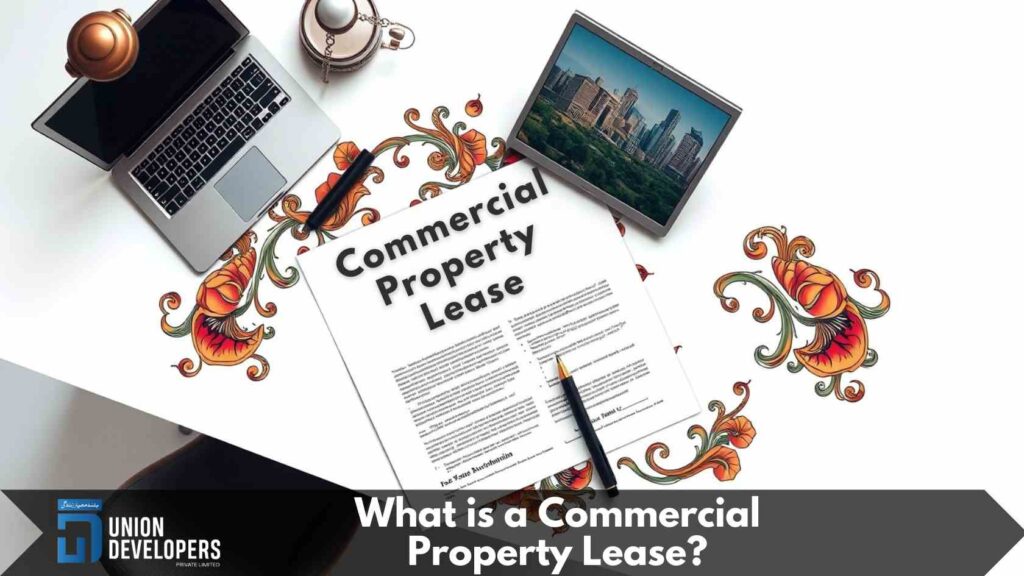
A commercial property lease refers to a legal document that states clearly the rights and responsibilities of the tenants and landlords of a commercial property (a premises that is used solely for business purposes). There are three main categories of commercial property leases. These categories represent the major types of commercial real estate, and each has its own structure and requirements depending on the business nature conducted in the space.
Categories of Commercial Property Leases
Office: These leases apply to the corporate spaces used for business operations. These do not directly involve direct retail or manufacturing. Office spaces can range from small, co-working offices to large corporate headquarters.
Retails: these leases are used for spaces like shopfronts, shopping centres, and malls where goods and services are sold to consumers directly.
Industrial: Industrial leases cover spaces used for manufacturing, distribution, warehousing, or production purposes. These properties are large and may include specific features like large storage areas, loading docks, or high ceilings.
Types of Commercial Property Leases
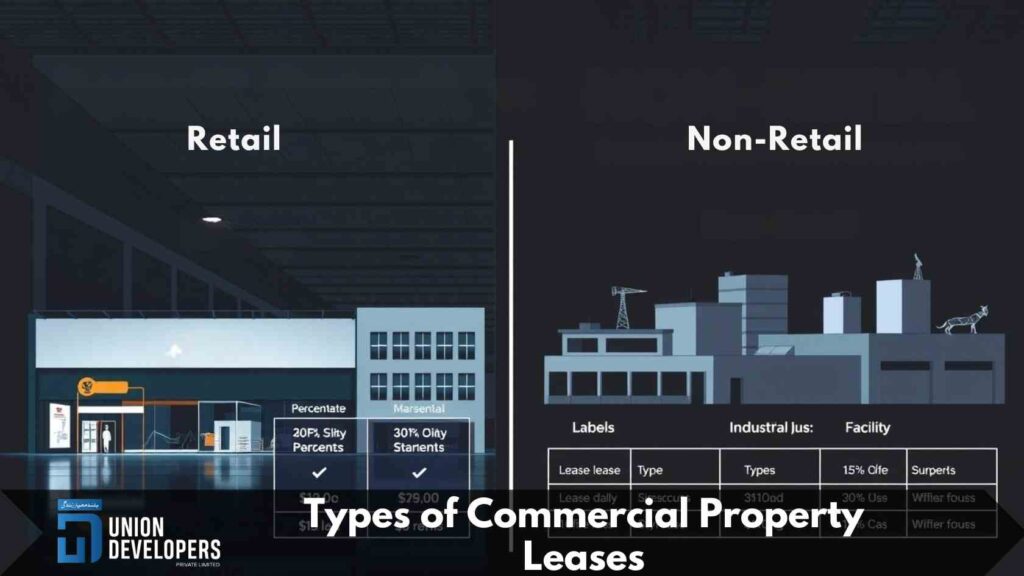
There are two types of commercial property leases:
Retail: Retail commercial leases apply in cases where goods or services are being sold to the public directly from the commercial premises.
Non-Retail: Non-retail commercial leases apply when the premises will not be used for selling any goods or services to the public directly. For example, spaces that are used for the warehouse or offices only.
The commercial property leases include all the terms and conditions set out under the standard lease. Here are some of the examples:
Who the parties are and the address of the property
- The amount of rent to be paid
- When the rent is due.
- The lease period
- What the landlord will not do
- What the landlord is expected to do
- Option rights for renewal
- Any further terms
Commercial property leases also normally include fit-out costs and responsibilities (in some commercial leases, the tenants are required to pay outgoings such as taxes, rates, levies, water, or utilities).
Are Oral Agreements Valid?
There is no law against making an oral or verbal agreement, but they come with serious risks. It is very tough to legally enforce an agreement that is not made in written form. A dispute taken to the court involves the court hearing evidence so they can decide whom to believe. The court solely believes in solid evidence, and to win the dispute, you must have both verbal and written evidence.
When you have a written agreement, the court will usually uphold it. The court will always consider the written agreement, even if it is not what was verbally agreed on. That is why you will have to get the written agreement and both parties will sign that agreement to avoid any dispute in the future.
Key Things To Remember About Commercial Property Leases
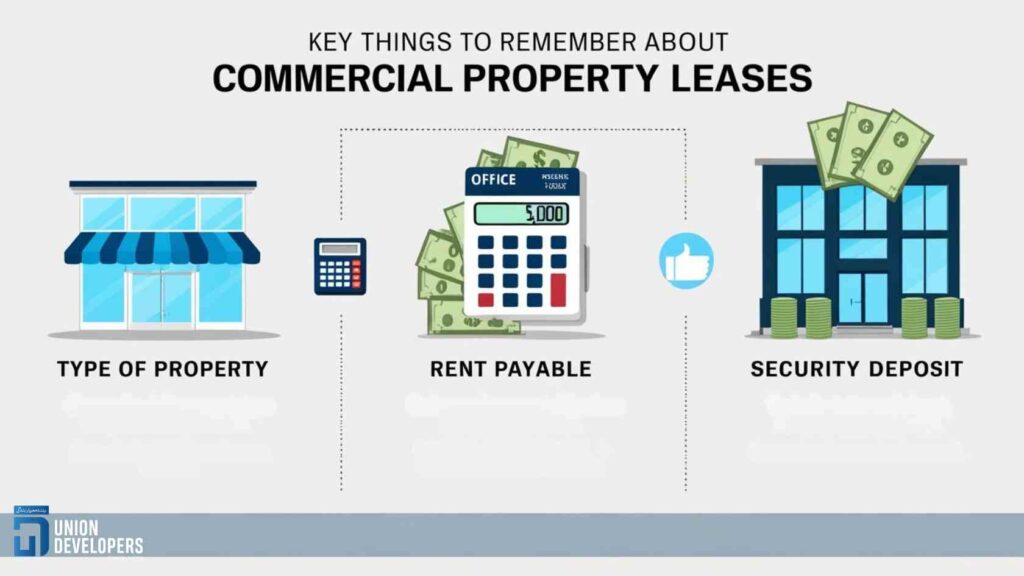
As a landlord, you need to make sure that the documentation addresses your needs and that you understand your lease obligations and rights.
Type of Property
The legal description of the premises section has the address, floor plans, and boundary details. It can also include the descriptions of fixtures and descriptions of the fittings called chattels. The legal description of a premises reveals how the property is identified by the agents and the law. Moreover, the description can be found in a deed, mortgage, or any other purchase document. You should also be able to identify the type of property by asking your tax advisor or land titles.
Tenancy Terms and Renewals
Tenancy terms and renewals deal with defining the duration or length of a commercial lease. It can have automatic renewal details, fixed end dates as agreed, periodic tenancy details, security of tenure details, etc.
A fixed-end date lease gives clarity to the tenant and landlord, providing the exact day the tenancy will end. Neither party has to give the notice to terminate because it ends automatically.
It provides the start date and the number of weeks, months, or years for the lease tenure. In this example, neither party gives notice because it ends automatically on the decided date.
Next, we have a periodic lease that can be weekly, monthly, or yearly, but it continues until one of the parties involved terminates the lease by giving notice in a way laid down by statute law. For example, the notice period should be served at a specific time, like one month or days before.
Rent Payable
Commercial property rents are usually paid beforehand every quarter, but there is often room for flexibility. The base rent is the basic rent a tenant pays, and a percentage lease is the base plus a percentage of the business’s monthly income.
A complete repair and insurance lease makes the tenant responsible for all the building’s maintenance costs.
Security Deposit
A security deposit is paid by the tenant to the landlord to ensure the tenant will abide by the terms of their lease. The landlord hangs onto the money for the whole term of the lease, and if the property is damaged, they recoup the debt from the deposit. The deposit is one month’s rent, and the condition inspection of the house is done.
Lastly,
If you are planning to put up a commercial property for lease, a warehouse space for rent, or a retail space for lease. Now you have some of the ideas about the ins and outs of a commercial property lease. Everyone with a commercial building to lease benefits from the best support from experts about the law, the tax implications, and every other aspect of associate paperwork and the leasing process. We wish you the best of luck as one of the best real estate developers.
